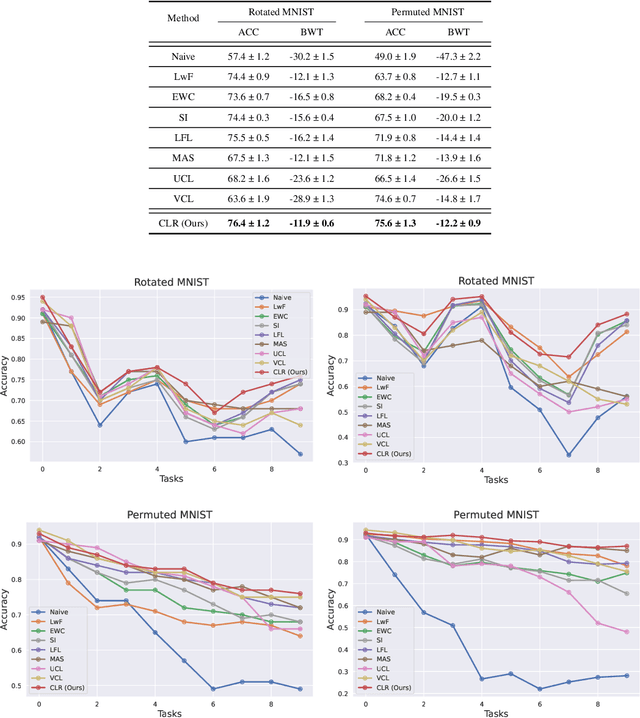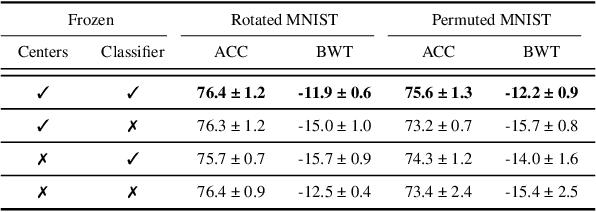Center Loss Regularization for Continual Learning
Paper and Code
Oct 21, 2021



The ability to learn different tasks sequentially is essential to the development of artificial intelligence. In general, neural networks lack this capability, the major obstacle being catastrophic forgetting. It occurs when the incrementally available information from non-stationary data distributions is continually acquired, disrupting what the model has already learned. Our approach remembers old tasks by projecting the representations of new tasks close to that of old tasks while keeping the decision boundaries unchanged. We employ the center loss as a regularization penalty that enforces new tasks' features to have the same class centers as old tasks and makes the features highly discriminative. This, in turn, leads to the least forgetting of already learned information. This method is easy to implement, requires minimal computational and memory overhead, and allows the neural network to maintain high performance across many sequentially encountered tasks. We also demonstrate that using the center loss in conjunction with the memory replay outperforms other replay-based strategies. Along with standard MNIST variants for continual learning, we apply our method to continual domain adaptation scenarios with the Digits and PACS datasets. We demonstrate that our approach is scalable, effective, and gives competitive performance compared to state-of-the-art continual learning methods.
 Add to Chrome
Add to Chrome Add to Firefox
Add to Firefox Add to Edge
Add to Edge